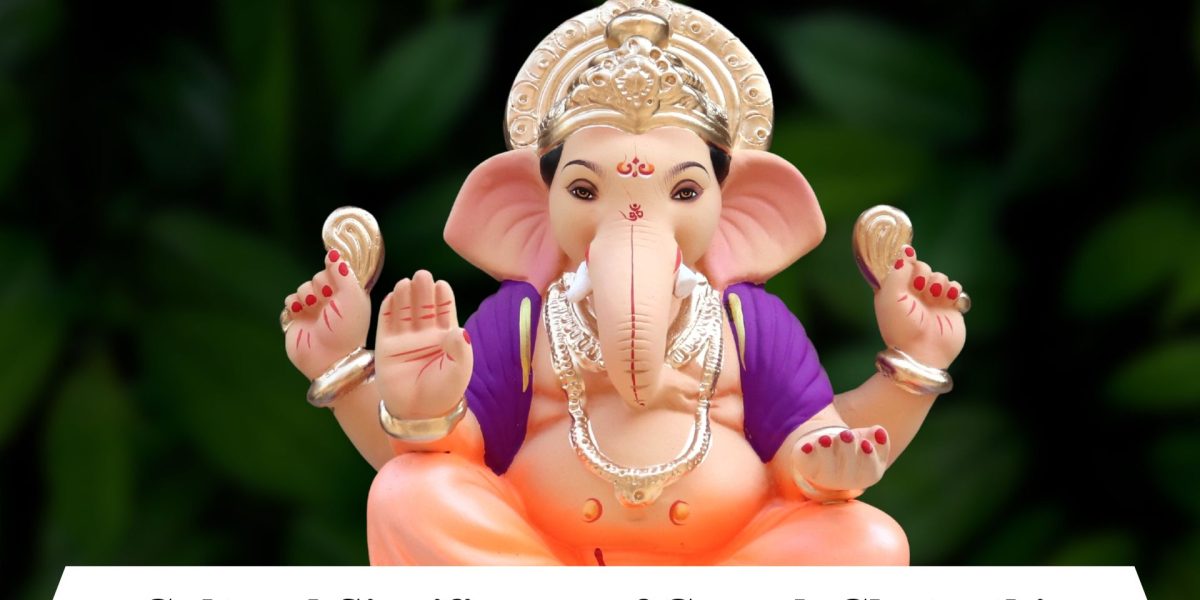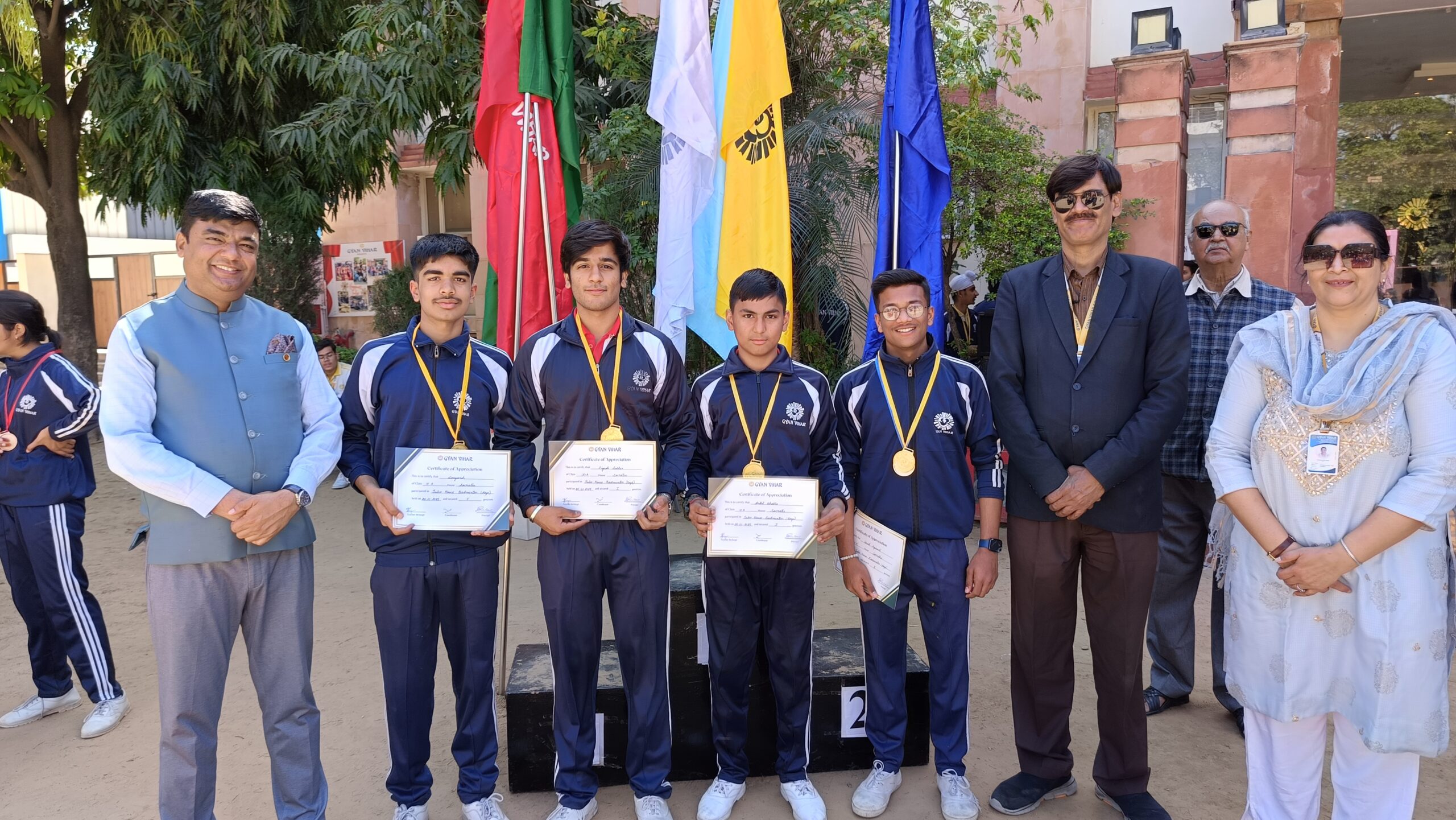Ganesh Chaturthi, also known as Vinayaka Chaturthi, is one of the most widely celebrated festivals in India, dedicated to Lord Ganesha, the elephant-headed deity known as the remover of obstacles and the god of wisdom. This festival offers valuable lessons and insights that are especially beneficial for students. At Gyan Vihar School, recognized as one of the top CBSE schools in Jaipur, understanding the cultural significance of Ganesh Chaturthi can enrich students’ knowledge of Indian traditions and values. This blog delves into the cultural significance of Ganesh Chaturthi and explores the lessons it imparts for students.
Introduction to Ganesh Chaturthi
Ganesh Chaturthi is celebrated on the fourth day of the Hindu lunar month of Bhadrapada, which usually falls in August or September. The festival commemorates the birth of Lord Ganesha, who is worshipped as the deity of intellect, wisdom, and new beginnings.
Brief History and Mythology
The origins of Ganesh Chaturthi are rooted in Hindu mythology. Lord Ganesha was created by Goddess Parvati from the dust of her body. When Lord Shiva, Parvati’s husband, did not recognize Ganesha and was denied entry to their home, he became angry and severed Ganesha’s head. Upon realizing his mistake, Shiva replaced Ganesha’s head with that of an elephant, bringing him back to life. This mythological story symbolizes the unique qualities and attributes of Lord Ganesha.
Symbolism of Lord Ganesha
Lord Ganesha’s physical features carry profound symbolic meanings:
- Elephant Head: Represents wisdom, intellect, and the ability to overcome challenges.
- Large Ears: Indicate the importance of listening and understanding.
- Broken Tusks: Symbolize the acceptance of imperfections and the power of sacrifice.
- Trunk: Emphasizes adaptability and the strength to overcome obstacles.
The Cultural Significance of Ganesh Chaturthi
Ganesh Chaturthi is not just a religious festival but also a significant cultural event that offers various lessons for students. Here’s a closer look at its cultural significance:
Lessons in Wisdom and Knowledge
Embracing Learning
Lord Ganesha is revered as the god of wisdom and learning. The festival encourages students to value education and seek knowledge. Here are some lessons that students can learn from this aspect:
- Value of Education: Just as Ganesha is associated with wisdom, students should prioritize their education and strive for academic excellence.
- Continuous Learning: The festival reminds students that learning is a continuous process. Embrace curiosity and the pursuit of knowledge beyond textbooks.
Overcoming Challenges
Lord Ganesha is known as the remover of obstacles. The festival serves as an inspiration for students to face challenges with resilience and determination:
- Problem-Solving Skills: Learn to approach problems with a positive mindset and seek solutions creatively.
- Persistence: Understand that obstacles are a part of life, and persistence is key to overcoming them.
Importance of Community and Unity
Celebrating Together
Ganesh Chaturthi fosters a sense of unity and community. The communal celebrations bring people together, creating a spirit of togetherness and cooperation:
- Teamwork: Engage in group activities and celebrate festivals with family and friends. Collaboration and teamwork are essential for achieving common goals.
- Cultural Heritage: Participate in and appreciate traditional rituals, which help in preserving cultural heritage and strengthening communal bonds.
Respect for Diversity
The festival is celebrated with various customs and practices across different regions of India. This diversity highlights the importance of respecting and embracing cultural differences:
- Cultural Awareness: Learn about and respect different cultures and traditions. Understanding diverse perspectives enriches your worldview.
- Inclusivity: Foster an inclusive attitude that values and celebrates differences among individuals and communities.
Environmental Responsibility
Eco-Friendly Practices
In recent years, there has been a growing emphasis on eco-friendly practices during Ganesh Chaturthi to minimize environmental impact:
- Sustainable Celebrations: Use biodegradable materials for making idols and decorations. This reduces pollution and promotes environmental stewardship.
- Awareness and Action: Participate in or organize activities that promote environmental awareness and sustainability.
Community Initiatives
Students can engage in community initiatives that promote eco-friendly practices:
- School Projects: Get involved in school projects that focus on environmental conservation and sustainability.
- Local Events: Participate in local community events that emphasize green practices during festivals.
Ganesh Chaturthi Celebrations at Gyan Vihar School
At Gyan Vihar School, one of the best CBSE schools in Jaipur, Ganesh Chaturthi is celebrated with enthusiasm and creativity. The school incorporates the festival into its educational activities, offering students a unique opportunity to learn and engage with cultural traditions.
School Activities and Events
Special Assemblies
The festival begins with a special assembly where students are educated about the significance of Ganesh Chaturthi, including its historical and cultural aspects:
- Educational Talks: Teachers and guest speakers share insights into the mythology and symbolism of Lord Ganesha.
- Interactive Sessions: Students participate in discussions and activities related to the festival’s themes.
Cultural Programs
Students showcase their talents through various cultural programs that highlight the essence of Ganesh Chaturthi:
- Performances: Skits, dances, and songs related to the festival are performed, allowing students to express their creativity and learn about cultural traditions.
- Art Exhibitions: Art and craft exhibitions feature eco-friendly Ganesh idols and decorations created by students.
Educational Workshops
Workshops are organized to teach students about the festival’s significance, rituals, and environmental impact:
- Workshops on Rituals: Students learn about traditional rituals and their meanings.
- Eco-Friendly Practices: Workshops focus on creating sustainable and eco-friendly festival decorations and idols.
Engaging Students in the Festival
Essay and Art Competitions
Competitions are held to encourage students to explore the themes of Ganesh Chaturthi creatively:
- Essay Writing: Students write essays on topics related to Ganesh Chaturthi, its significance, and the lessons it teaches.
- Art and Craft: Art competitions focus on creating artwork and crafts that represent the festival’s themes.
Community Involvement
Gyan Vihar School encourages students to participate in local Ganesh Chaturthi celebrations and community service:
- Volunteering: Students can volunteer in community events that focus on celebrating the festival and promoting eco-friendly practices.
- Cultural Exchange: Engage in cultural exchange programs to understand different regional customs and traditions related to Ganesh Chaturthi.
Conclusion: Embracing the Lessons of Ganesh Chaturthi
Ganesh Chaturthi is more than a festival; it is a celebration of wisdom, unity, and environmental responsibility. For students at Gyan Vihar School, one of the top CBSE schools in Jaipur, it provides an opportunity to learn valuable lessons and engage in cultural traditions.
By embracing the lessons of Ganesh Chaturthi, students can develop a deeper appreciation for their cultural heritage, enhance their problem-solving skills, and foster a sense of community and environmental responsibility. As we celebrate Ganesh Chaturthi, let us reflect on these lessons and strive to apply them in our daily lives, contributing to a more informed, united, and sustainable world.







